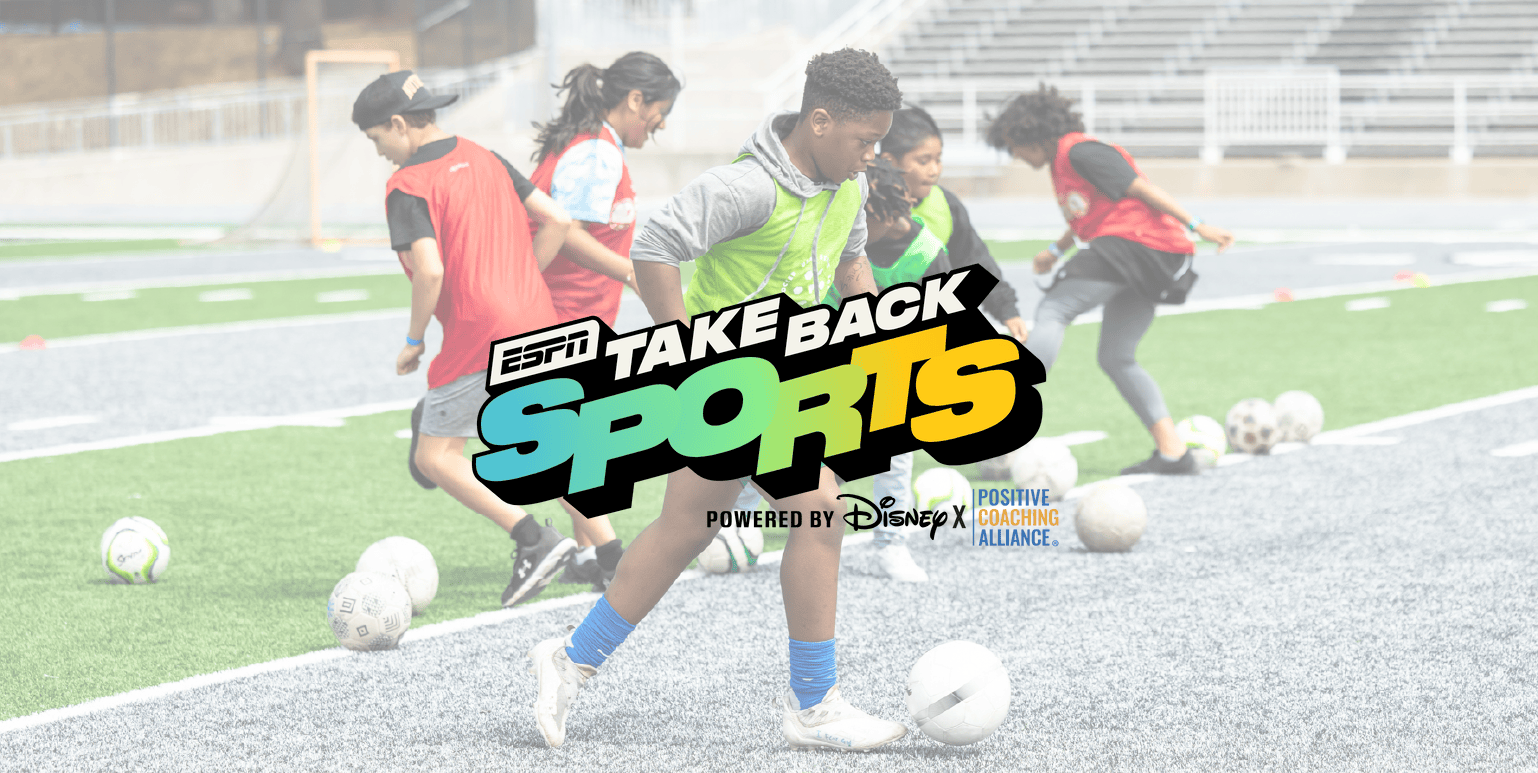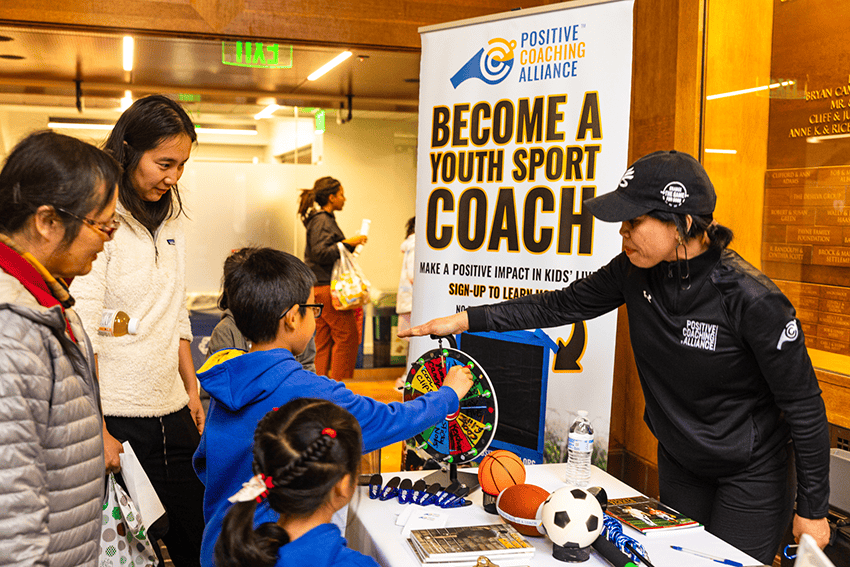How PCA Is Helping Young Athletes to Take Back Sports

09.15.25
In recent years, youth sports participation has steadily declined. Studies show that 70% of kids quit organized sports by the age of 13, often due to overwhelming pressure, cost-related barriers, negativity, or a lack of joy. What once was a place to build friendships, resilience, and confidence is now often a source of stress—for young athletes and their families alike.
That’s why Positive Coaching Alliance (PCA), in partnership with ESPN, Disney, and other youth-serving organizations, is working to Take Back Sports—reclaiming the fun, positive, and inclusive environments that make sports such a powerful experience for young people.
Why Should Kids Play Sports?
There are countless benefits of youth sports participation that extend far beyond physical fitness. Research from the Aspen Institute’s Project Play shows that kids who play sports are more likely to perform well in school, develop strong social bonds, and experience improved mental health.
Team sports help youth build confidence, learn accountability, and develop empathy. According to a study published in the Journal of Adolescent Health, students who play sports are less likely to engage in risky behaviors and more likely to report a strong sense of belonging. These are just a few of the pros of youth sports that make participation so valuable for young people.

What Is Driving the Youth Sports Participation Decline?
The youth sports participation decline isn’t due to just one issue—it’s the result of multiple pressures that have reshaped the experience for young athletes. While every community is different, several recurring challenges are pushing kids away from the game.
Aggressive Coaches
Coaches who are overly intense—whether through constant criticism, playing-time bias, or public humiliation—can erode a child’s love for the sport. A win-at-all costs coach, a coach yelling at kids, or one who labels players as benchwarmers rather than teaching and encouraging them can have long-lasting negative effects. Research from the National Youth Sports Strategy suggests that emotionally unsafe environments created by angry coaches are a top reason for early dropouts.
Learn more about defining the role of a coach and how to be a positive influence.
Disruptive Parents
We’ve all seen it: “that parent” on the sidelines yelling at referees or criticizing kids from the stands. While often well-meaning, these actions can create a toxic sports atmosphere. A 2022 report from the National Alliance for Youth Sports found that parental pressure and ego-driven behavior were among the most commonly cited reasons children said they no longer enjoyed sports.
Systemic Pressure Points
Youth sports have also become increasingly competitive and expensive. Rising costs, lack of access, limited multi-sport options, and inadequate facilities can all limit participation—especially for marginalized communities, where opportunities to experience the benefits of sports are often out of reach. This shift toward elitism over enjoyment undermines the inclusive spirit sports should foster.
A Lack of Fun
When kids stop having fun, they stop showing up. Whether it’s from being over-coached, underplayed, or made to feel like they don’t belong, young athletes are dropping out because the joy is gone. According to Project Play, the number one reason kids play sports is to have fun—and the number one reason they quit is because it’s not fun anymore.
Other Contributing Factors
Bullying from teammates, toxic team cultures, and overemphasis on early specialization are just a few more issues contributing to the decline. Youth sports should be a place where every child feels supported and included, not sidelined or singled out.
How Positive Coaching Alliance Is Addressing the Youth Sports Decline
At PCA, we believe a better future for youth sports is possible—and we’re working every day to build it. Through research-based programming, community collaboration, and our nationwide Take Back Sports initiative with Disney and ESPN, we’re helping more young athletes stay in the game.
Coaching Training & Workshops
Our coaching workshops and live/virtual coach training sessions are designed to equip leaders with the tools they need to build positive, inclusive environments. We focus on the fundamentals of positive coaching, emphasizing emotional safety, player development, and connection.
Parent Resources
PCA provides tools and workshops for parents to help them be constructive, supportive members of the team. Our parent resources help caregivers understand their role in creating a positive sports culture—from how they cheer on the sidelines to how they talk about performance at home.
Community Engagement
PCA partners with schools, leagues, and nonprofit organizations across the country to deliver in-person and virtual programs that promote youth development through sports. We also work closely with local communities to ensure our impact meets their unique needs—especially in under-resourced areas where we bring local leaders together to address access barriers that limit participation

Take Back Sports
In 2025, ESPN launched the Take Back Sports campaign in partnership with PCA and Disney. The initiative includes a national awareness campaign, behavior-based pledges, fun-first training tools, and resources for parents and coaches. PCA is proud to be a key part of this movement to reclaim joy and positivity in youth sports.
Join the movement and take the pledge at TakeBackSports.org.
Conclusion
Kids deserve to grow up loving sports—not dreading them. At Positive Coaching Alliance, we’re on a mission to reverse the youth sports participation decline by supporting the adults who shape the experience: coaches, parents, and community leaders.
Learn how you can get involved in the Take Back Sports movement, sign up for a workshop, address access barriers in your community, or make a donation to help us expand our impact and bring positive sports experiences to more communities.